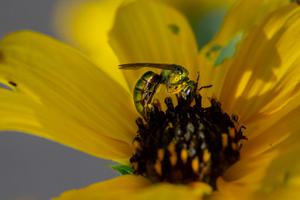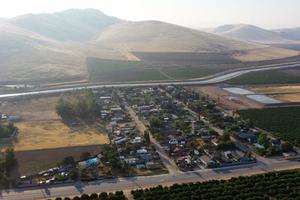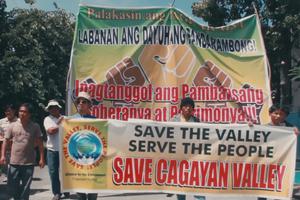The Didipio gold and copper mine stretches 105 square miles, cutting into the steep, forested hillsides of Nueva Vizcaya province on the island of Luzon in the Philippines. Operated by the Australia-based company OceanaGold, the mine is one of largest producers of gold and copper in the world.
In his documentary, “This Is Our Land” (“Dagami Daytoy”) — the second-place winner in the 2020 Yale Environment 360 Video Contest — Filipino filmmaker Noni Abao chronicles how after years of environmental degradation and public health impacts, local Indigenous communities have begun fighting back, calling for the mine’s closure. Explosions have rocked local villages and polluted the air with debris, while waterways have been contaminated, destroying fish stocks and drinking supplies and reducing yields from crops in nearby fields. In 2019, when OceanaGold’s permit expired and the company continued operating at Didipio, Twali-Ifugao Indigenous activists set up a barricade to stop the delivery of fuel and other supplies to the mine.
Abao’s film, shot over five years, shows nearby communities’ growing frustration with the mine, and the decision to ultimately take more forceful action. “It is right to protect and defend our ancestral lands,” says one Twali-Ifugao activist. “Our ancestors and the current generation up to the next generation will live here.”
Since Abao finished filming, dozens of the activists who organized the road blockade have been arrested following clashes with police and company representatives. In early July, Philippines President Rodrigo Duterte signed the Anti-Terrorism Act, which critics say will make it easier for the government to arrest human rights and land defenders and muzzle dissent.
About the Filmmaker: Noni Abao is a producer and production manager for films and documentaries. He worked as a full-time human rights worker in the Philippine’s Cagayan Valley Region where he made short documentaries on the conditions in the area. “This Is Our Land” is his first documentary film.
About the Contest: The Yale Environment 360 Video Contest honors the year’s best environmental films, with the aim of recognizing work that has not previously been widely seen. Entries for 2020 were received from six continents, with a prize of $2,000 going to the first-place winner.



